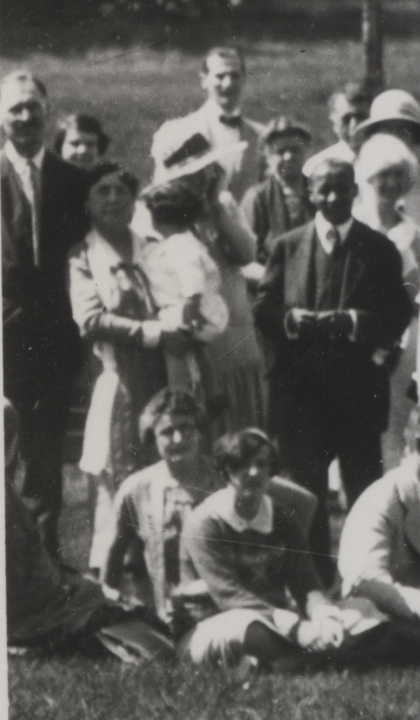Alain Locke, a luminary of the early 20th century, is often hailed as the father of the Harlem Renaissance due to his profound influence on African American culture and identity. Yet, his advocacy for the Bahá’í Faith is a strand of his legacy that beckons further exploration and contemplation. Locke’s theological pursuits and philosophical inquiries into the Bahá’í teachings reveal not only an intellectual complexity but also a transformative worldview, invoking a shift in perspective that resonates with contemporary society.
At the core of Locke’s advocacy lies the concept of unity—a principle that permeates Bahá’í teachings. He perceived the fragmentation of humanity as a crucial obstacle to progress and development. Locke ardently promoted the idea that the Bahá’í Faith, with its foundational tenet of the unity of mankind, offered a compelling antidote to racial, religious, and cultural divisions. In highlighting this tenet, he encouraged individuals to transcend their parochial affiliations and embrace a more expansive understanding of community.
This persistent call for unity is instrumental in Locke’s philosophical framework. He articulated how the Bahá’í Faith prescribes a reorientation of priorities wherein allegiance to humanity supersedes loyalty to nation or ethnicity. Such a paradigm shift prompts individuals to reexamine their embedded prejudices and biases, fostering a more inclusive worldview. Locke’s writings, steeped in the ethos of the Bahá’í Faith, challenge readers to interrogate their perspectives and develop an abiding kinship with all humanity. This pursuit is not merely ideological but fundamentally practical, demanding action towards social justice and equity.
Locke’s intellectual engagement with the Bahá’í Faith was also characterized by his enthusiasm for its teachings on education and knowledge. The Bahá’í principle of the importance of education is paramount, emphasizing that knowledge is the catalyst for individual and societal transformation. Locke, as an educator and philosopher, resonated deeply with this notion, advocating for a holistic education that nurtures not just the intellect but also the spirit. He believed that education serves as the bedrock for developing moral capacities and fostering a sense of duty towards social betterment.
The Bahá’í teachings further accentuate the interplay between rights and responsibilities, a duality that is particularly significant in Locke’s discourse. He elucidated that as individuals cultivate their own understanding and appreciation of the world’s diversity, they simultaneously cultivate their capacity to champion the rights of others. This reciprocity—between asserting one’s rights and safeguarding the rights of the collective—is an essential aspect of the Bahá’í Faith that Locke fervently endorsed. In Locke’s view, the cultivation of moral virtues and ethical responsibility is indispensable for the realization of a more harmonious global society.
Moreover, Locke’s engagement with the Bahá’í Faith was not merely academic; it was deeply personal. His own identity as an African American man shaped his understanding of the Bahá’í principles of equality and justice. He actively grappled with the historical injustices faced by people of color, integrating this struggle into his advocacy for the Bahá’í teachings. His writings reflect a deep-seated desire to forge a path toward reconciliation and healing, not just for individuals but for entire communities scarred by division and strife. Herein lies the intersection of Locke’s personal struggle and his broader vision for societal transformation.
Locke’s scholarship also situates the Bahá’í Faith within a larger narrative of global spirituality, interweaving traditions and ideas to promote a universal understanding of truth. His recognition that diverse spiritual traditions may converge in their quests for meaning sets an expansive stage for dialogue and collaboration across cultural divides. By positioning the Bahá’í Faith as a facilitator for interfaith dialogue, Locke infused his advocacy with a compelling urgency, inviting individuals to explore the myriad expressions of humanity’s spiritual aspirations. This perspective not only engenders curiosity but also engenders a profound appreciation for the richness of diverse belief systems.
Among the multifaceted teachings of the Bahá’í Faith, the concept of progressive revelation stands out, reflecting Locke’s belief in the evolving nature of truth. He emphasized that each religious tradition contributes to a broader tapestry of spiritual understanding, and as society progresses, new revelations emerge to address the shifting needs and challenges of humanity. Locke’s embrace of this dynamic view of spirituality is emblematic of his larger ethos—an acknowledgment of the complexity of human experience and the necessity for adaptability in our quest for knowledge and truth.
In conclusion, Alain Locke’s advocacy of the Bahá’í Faith embodies a rich and nuanced understanding of the interdependencies within the human experience. His teachings prompt a reexamination of conventional notions of identity, rights, and responsibilities, shedding light on the potential for collective advancement through unity and education. Locke invites us to engage deeply with our spiritual and social responsibilities, piquing our curiosity about the pathways toward a more just, inclusive, and harmonious world. By embracing the wisdom inherent in the Bahá’í teachings, we are called to reflect not only on our individuality but also on our interconnectedness, allowing us to forge a shared destiny that honors the dignity of all.
